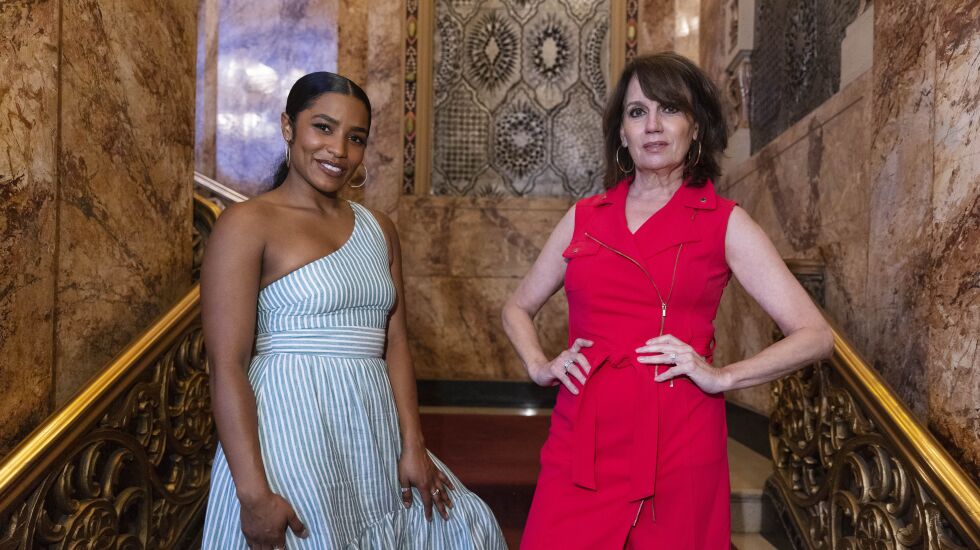
The stage adaptation of “The Devil Wears Prada” had a lot of steam propelling it forward in 2019 — songs by an esteemed songwriting team, a heralded director, a Tony Award winner as a co-lead, stunning high-fashion costumes, as well as a built-in audience of diehard fans of the popular movie and the novel it’s based on.
But like much in the world of theater over the past three years, the debut of the highly anticipated musical, receiving its world premiere in Chicago (starting Tuesday in previews), was repeatedly put on hold due to the pandemic. Yet through the height of it all, the work never stopped, says the show’s book writer Kate Wetherhead.
“Emotionally, it exacted a toll as it did on everyone,” she admitted. “But I do think the work itself benefited from that extra time by forcing us all to slow down. It was creatively luxurious because we were able to spend time with the story, spend time with the songs and, because there wasn’t that ticking clock, there was an added flexibility and malleability to the process.”
Lauren Weisberger’s novel “The Devil Wears Prada” was inspired by her real-life experiences as an assistant to Anna Wintour, the exacting editor-in-chief of Vogue magazine. The subsequent 2006 movie starred Anne Hathaway as journalism grad Andy Sachs, and Meryl Streep as the demanding and powerful Runway magazine editor-in-chief Miranda Priestly, a perfectly cast role, which earned the legendary actress an Oscar nomination.
The stage musical, under the direction of Anna D. Shapiro, features Broadway veteran Beth Leavel as Miranda and Taylor Iman Jones as Andy. The songs are the work of pop music icon Elton John (music) and singer-songwriter Shaina Taub (lyrics), with the high-fashion costume design by Oscar-nominated Arianne Phillips.
Working on the musical adaptation was a new venture for both Wetherhead, who is making her Broadway book-writing debut, and director and Steppenwolf Theatre ensemble member Shapiro, who has a long list of Broadway credits (most recently the Steppenwolf transfer “The Minutes”) but not one of them a musical.
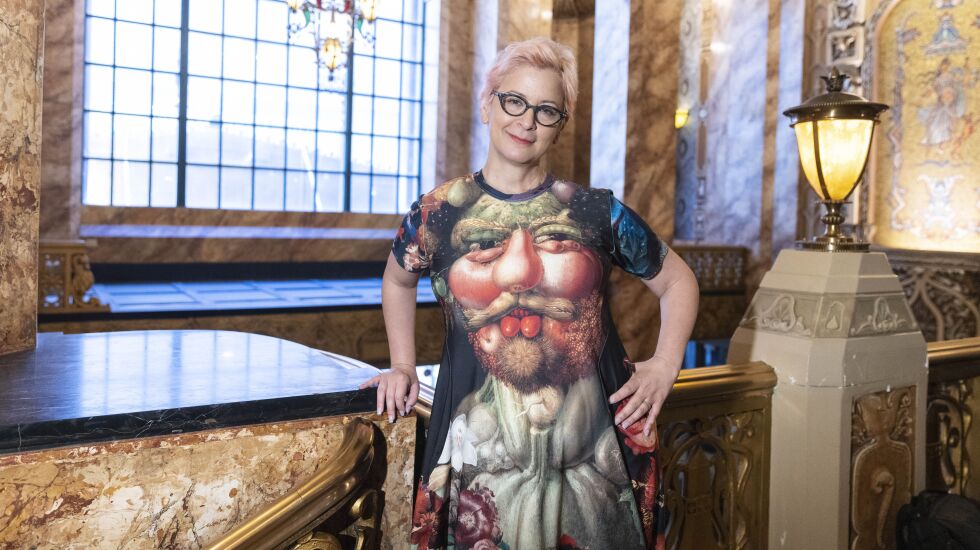
“Well, I’ve come to realize a musical is basically like doing ten plays at the same time while the building is on fire, but in a good way,” Shapiro says with a laugh. “It’s thrilling.”
As for Wetherhead, she “absolutely loved the process. It’s so collaborative and it’s the kind of problem solving that I genuinely enjoy — making the dialogue as economical and elegant as possible as you go from song to song.”
A challenge for the creative team was updating how this story of a young woman finding her voice continues to be relevant in today’s world.
For instance, in these woke times with workplace culture under the microscope there’s the issue of the “mean boss.” Asked if any adjustments were made to “tone down” Miranda’s fearsome personality, Shapiro says they didn’t have to do much.
“The truth is that even in the really important change movement that is happening around us we all know there are still impossible bosses,” Shapiro says. “Miranda is not really toned down in any way. She’s impossible, she’s magnetic, she’s the worst and the best at what she does. She has to remain complex and charismatic, or you’re not invested in Andy.”
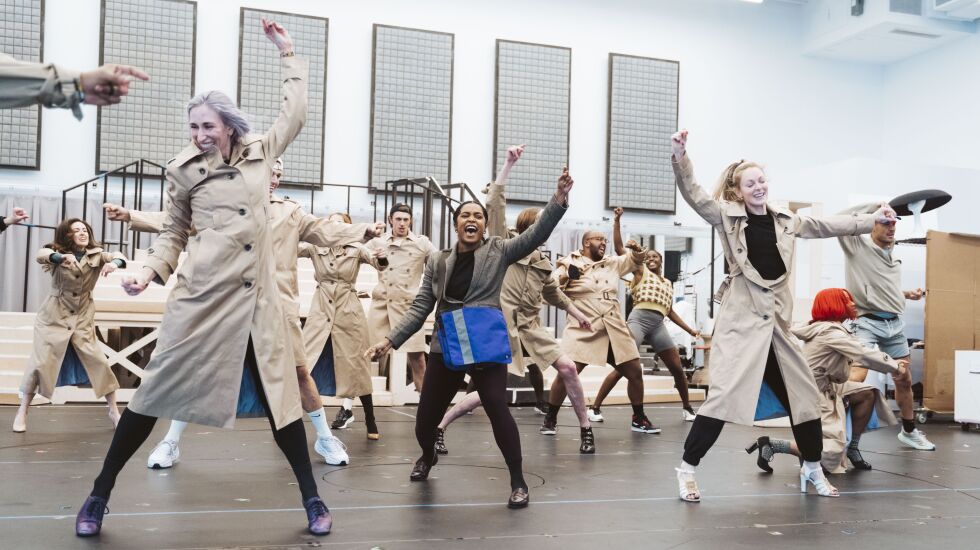
Shapiro says she knew she needed an actress who “could hold an entire Broadway stage by simply standing there. Miranda is very restrained, and you can’t suddenly because she’s in a musical make her someone who twirls and does jazz hands.”
The challenge was to find an actor who “knows their power without doing much.” Shapiro found that quality in Leavel who won a Tony for her performance in “The Drowsy Chaperone” and was most recently nominated for her role in “The Prom.” (In a bit of crazy serendipity, Leavel is playing the Streep film role in the musical, while Streep played Leavel’s character in the film version of “The Prom.”)
Leavel says she savors the challenge of portraying Miranda.
“I’m kind of the antithesis of Miranda Priestly. I’m really nice and funny and a good listener. So, it’s fun to put on someone else’s shoes who is the exact opposite of you and to live in her world and her energy.”
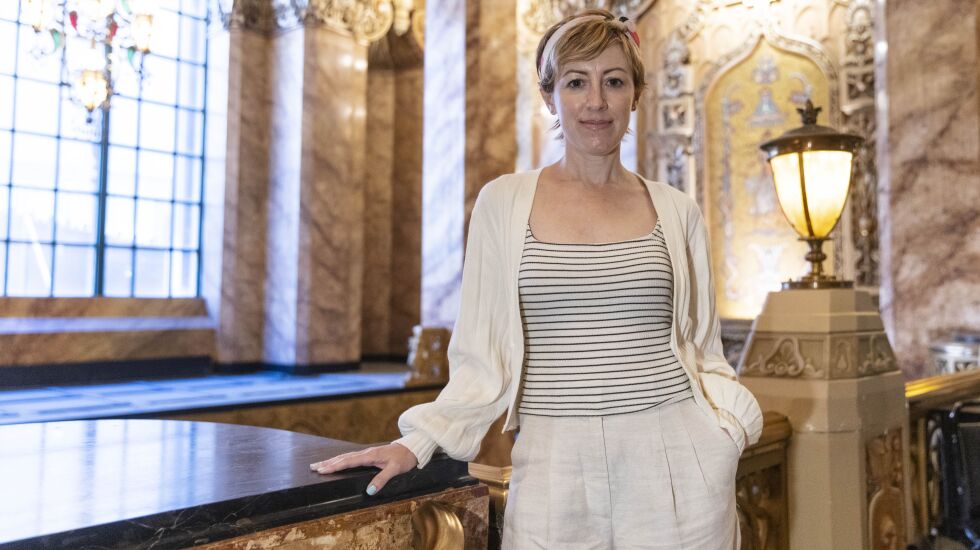
As for changes in portraying Andy, Jones, who is Black, says she is “not doing an Anne Hathaway impression.” Instead, she says, “Andy is pulled from a new young Black woman’s perspective which is really cool. What I like about her is she’s spunky, she’s a fighter, she’s ambitious, she’s brave but she’s also flawed.”
Costume designer Arianne Phillips has created what promises to be high-fashion feast, an essential element of the story. “There’s a lot of eye candy,” promises Wetherhead.
Adds Jones: “Arianne is celebrating fashion as art, she’s celebrating fashion as expression, she’s celebrating what fashion means in 2022 as representation.”
When it comes to the musical’s score, Elton John told People magazine that the songs will be “modern” and that he “enjoyed writing every single one.” It’s not his first foray into musical theater, having written music for “Billy Elliot the Musical,” “The Lion King” and “Aida.”
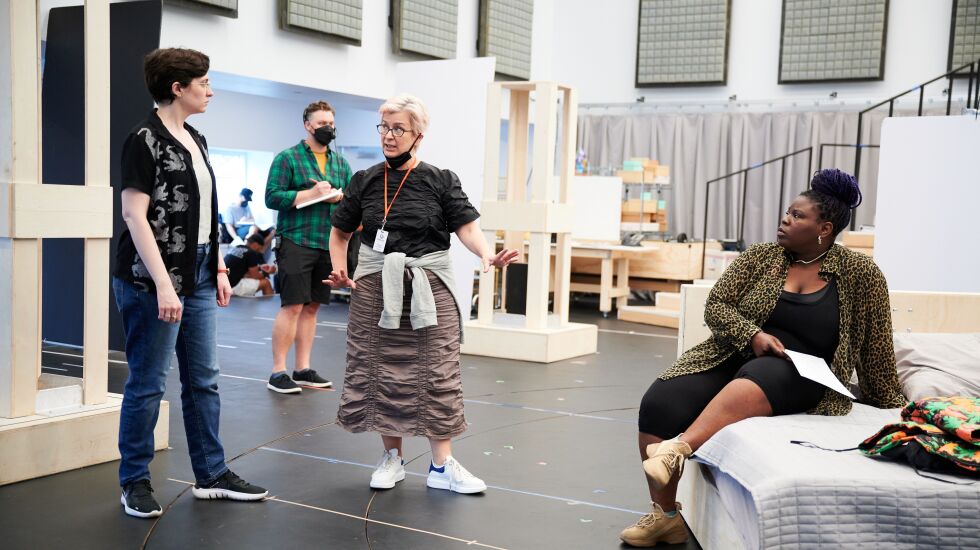
John and lyricist Shaina Taub have a shared love of musical theater and contemporary music, and they’ve created a score filled with pop tunes and ballads that Shapiro feels “tip into some incredible moving emotional truths.”
After the Chicago run, the creative team will continue to fine tune the show before it begins its expected February run on Broadway. Shapiro is certain she’ll learn from her hometown audience.
“This is an audience I trust. I love sitting in previews and hearing and feeling what is working and what isn’t. It feels like a partnership. After all this time working on the show, I’m really ready to hear the response.”



.png?w=600)



